Companies and Brands
This Steve Jobs Quote Will Make You View Life Differently
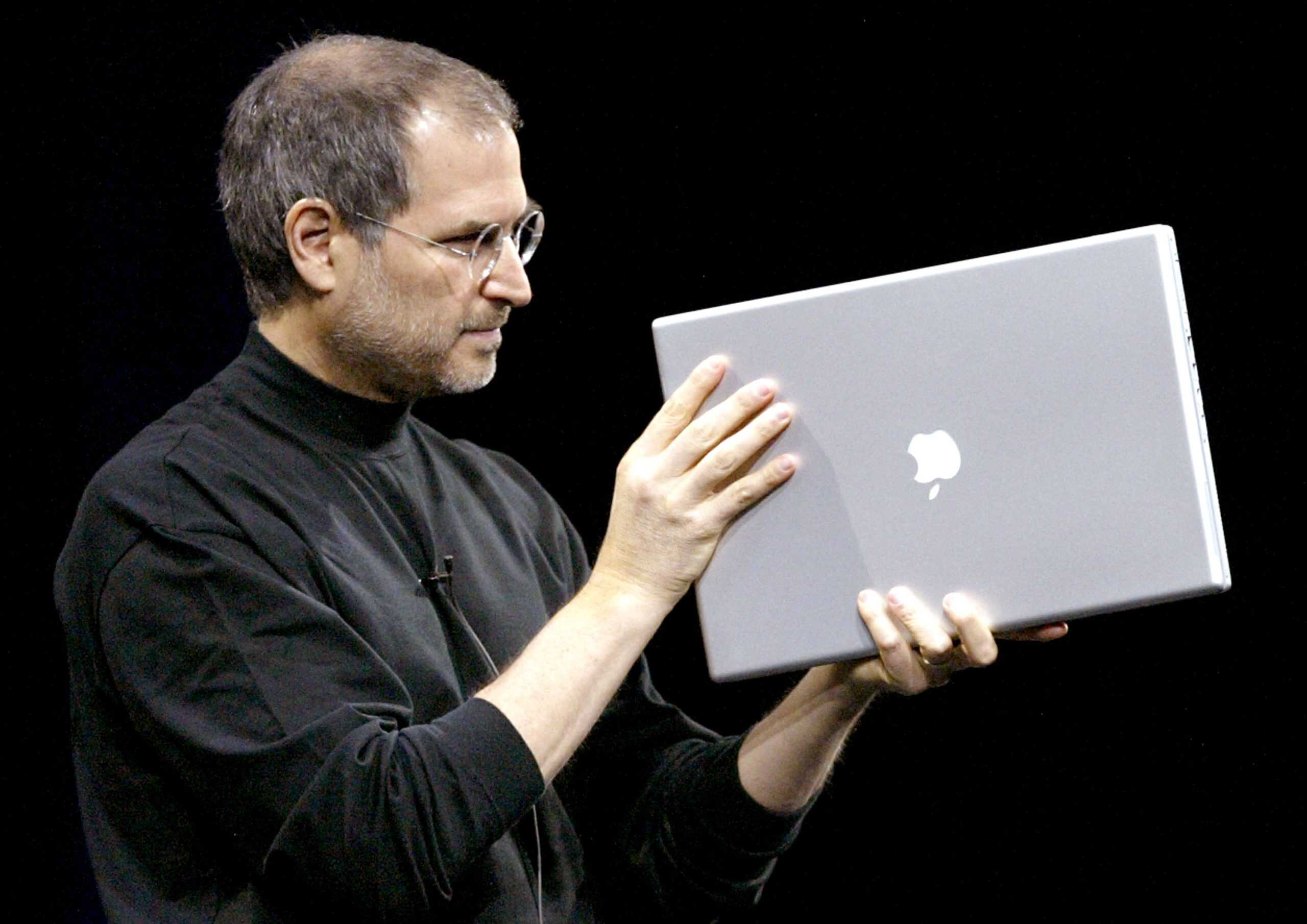
Published:

Steve Jobs, the visionary founder of Apple (NASDAQ: AAPL), left behind a legacy of inspiring quotes that continue to resonate with people of all ages. Some of these quotes are particularly inspiring for those in their 40s, who may be starting to reflect on their life.
We’ll explore a lot of different topics in this article, from personal autonomy to the power of innovation. These quotes apply to your career and professional life as well as personal decision-making.
Here are some of the most powerful things we learned:
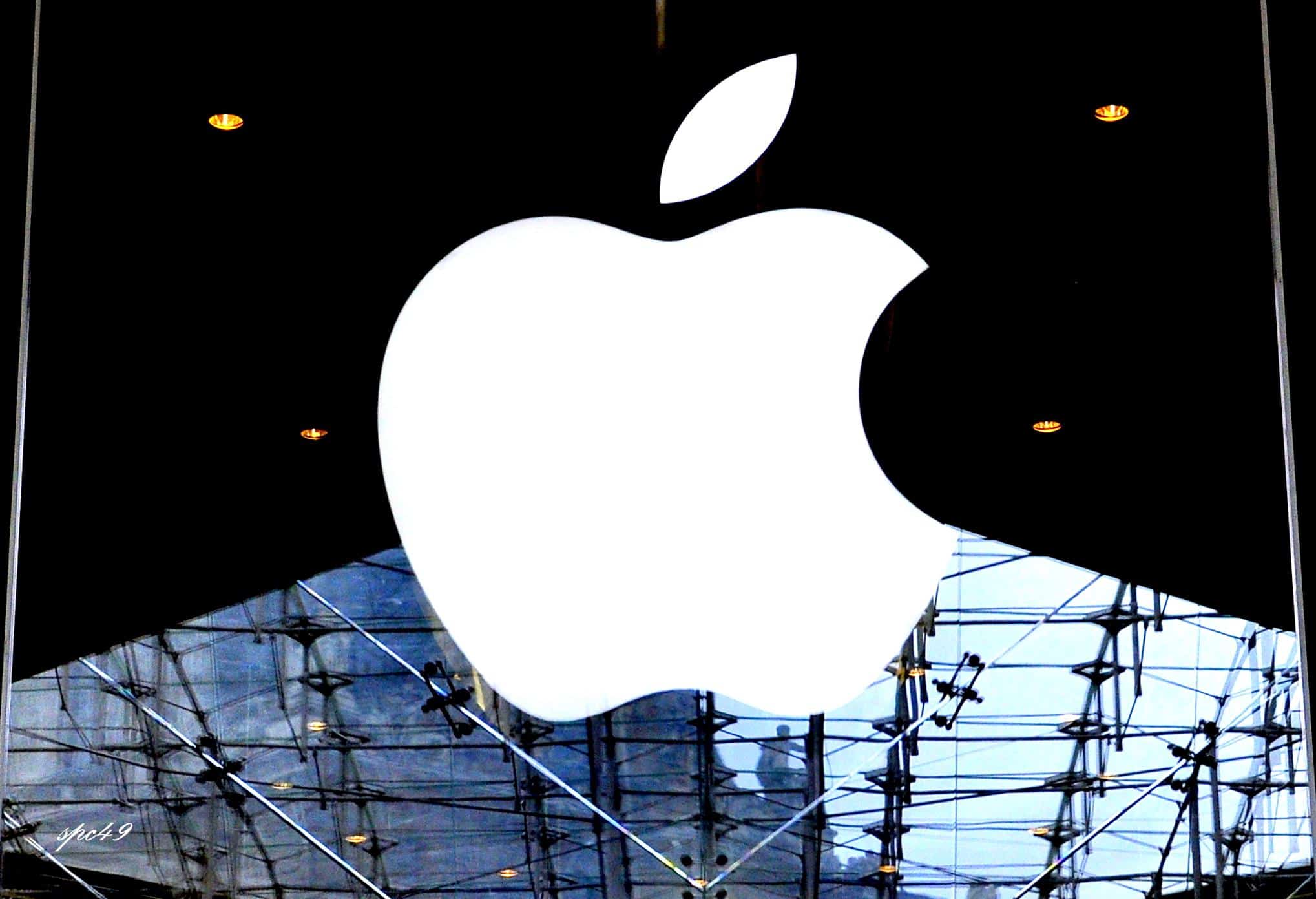
Steve Jobs was a very successful person. Apple is one of America’s most valuable companies, and, as you might guess, we cover it a lot. It only makes sense that we’d take an interest in the company’s founder, too.
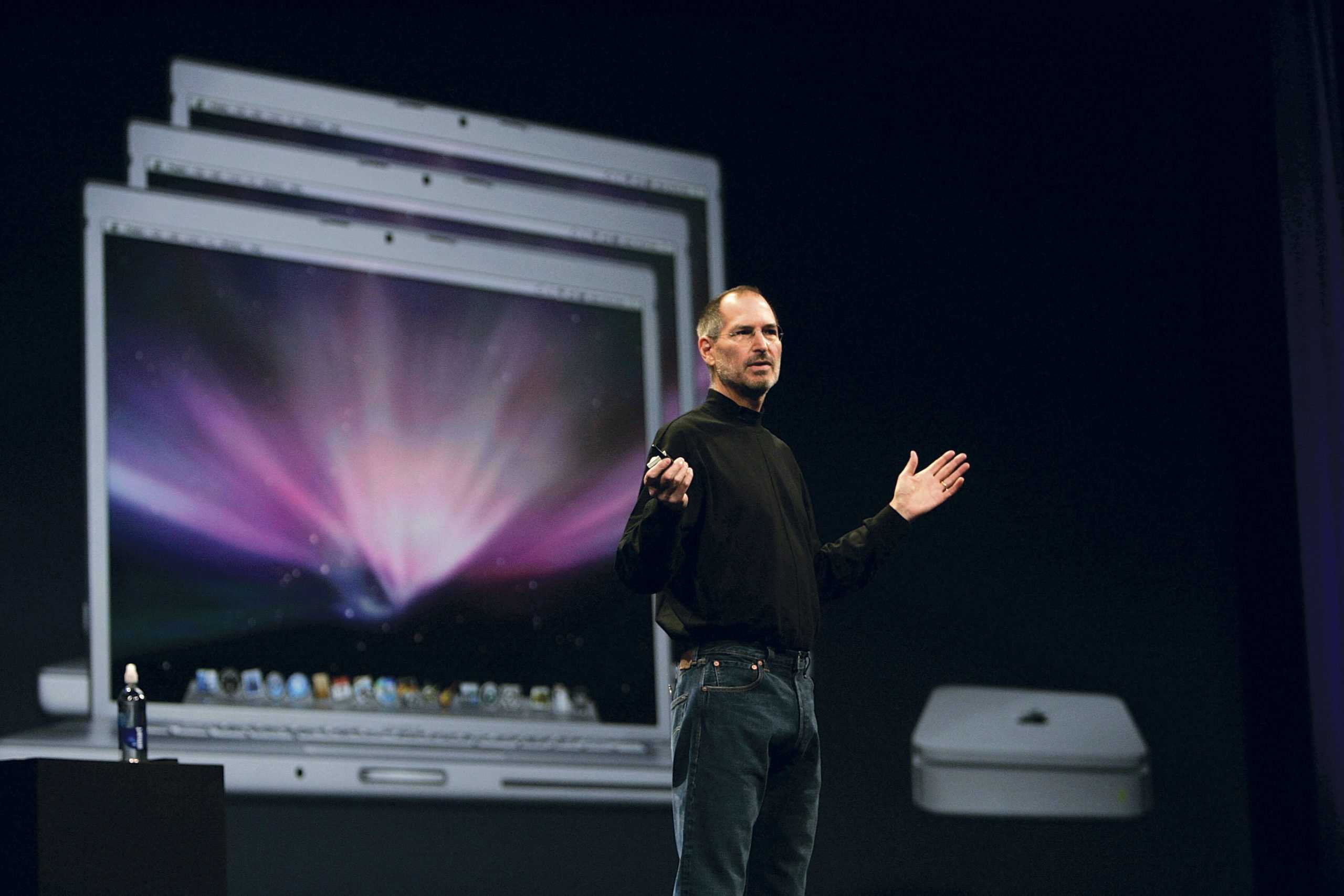
This statement by Steve Jobs emphasizes personal autonomy and self-discovery. It’s a call to live authentically and make choices in life that emphasize you. Making choices to make others happy will only get you so far, especially as your life trudges forward.
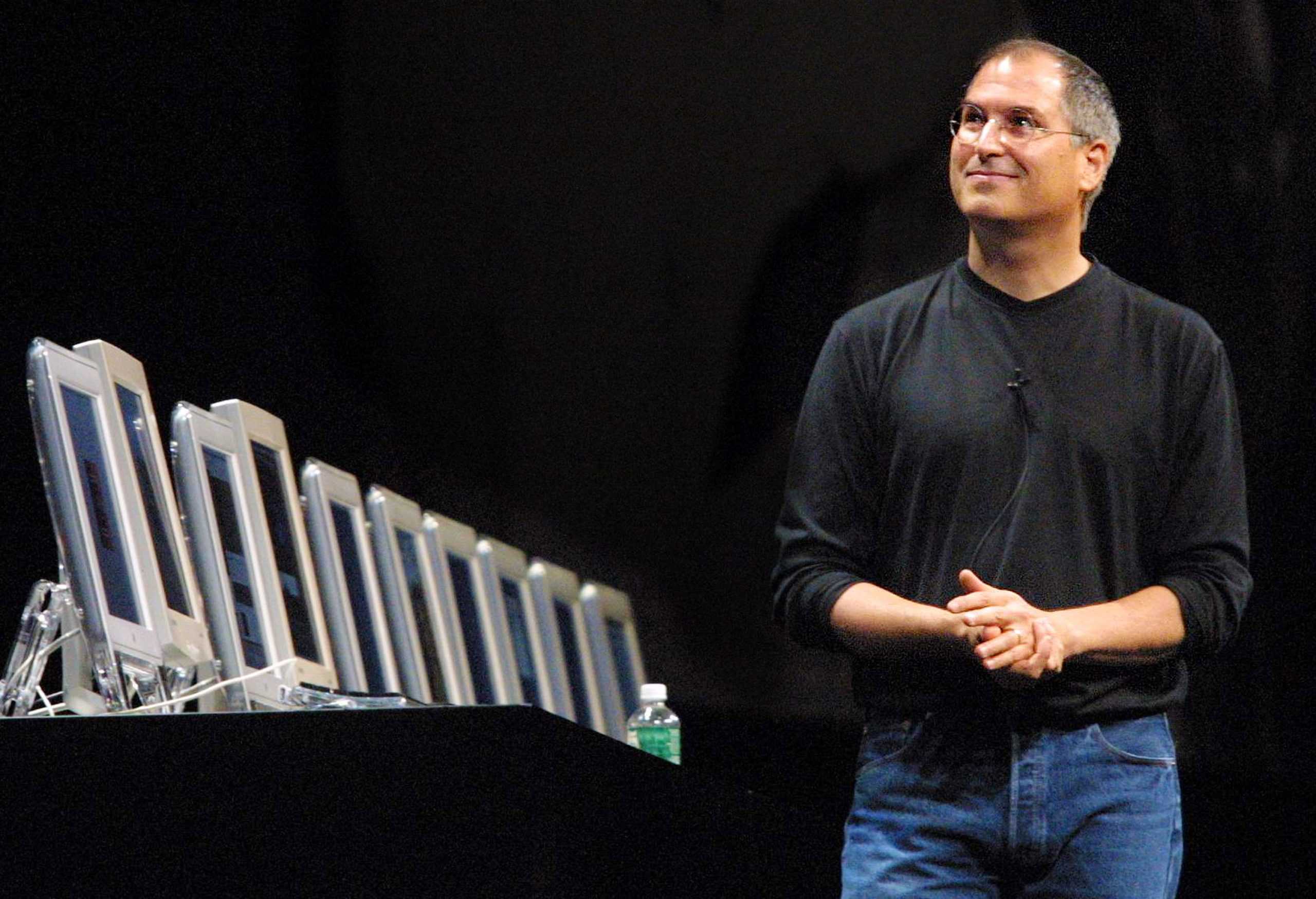
In your 40s, it’s very easy to give into the comfort of the familiar. You’ve been around the block a few times and probably have an established career and routine. However, these can obscure your true desires. You don’t just need to keep doing something because it is what you’ve always done.
Midlife is a great time to reflect and consider what you really want in life. For instance, if you have a long-held dream, it’s time to make sure you’re still heading in the right direction. Or perhaps your career path was once familiar but now stagnates.
This quote is a reminder that life is short, and you need to make sure you’re living it for you!
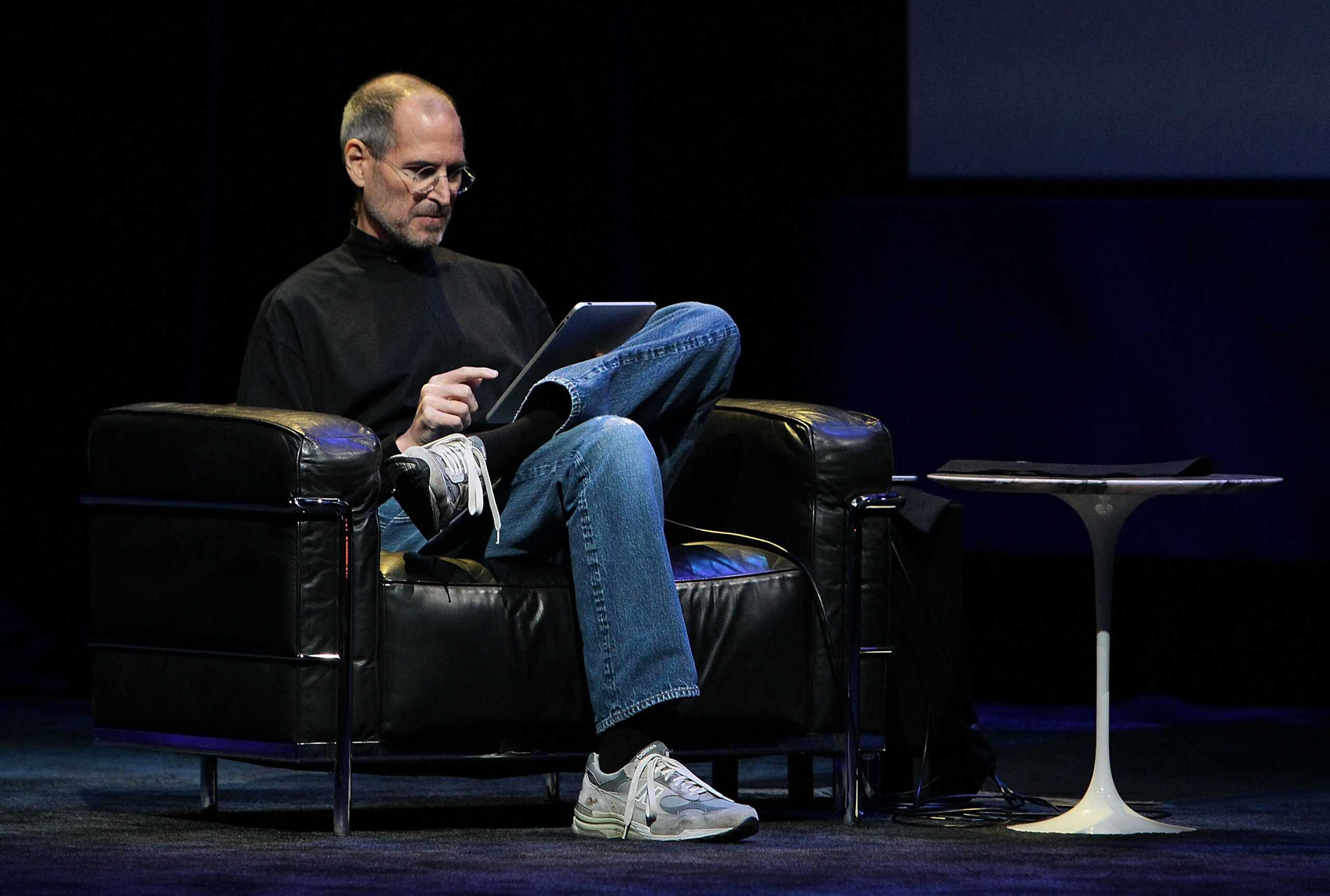
This iconic phrase is from a speech Steve Jobs gave at Stanford in 2005. It’s been viewed over 30 million times on YouTube, so it’s no surprise that the quote has become popular.
This phrase is often interpreted as “never stop learning.” It means to keep going even when you’ve already become comfortable. Everyone needs to stay a little foolish, even in your 40s.
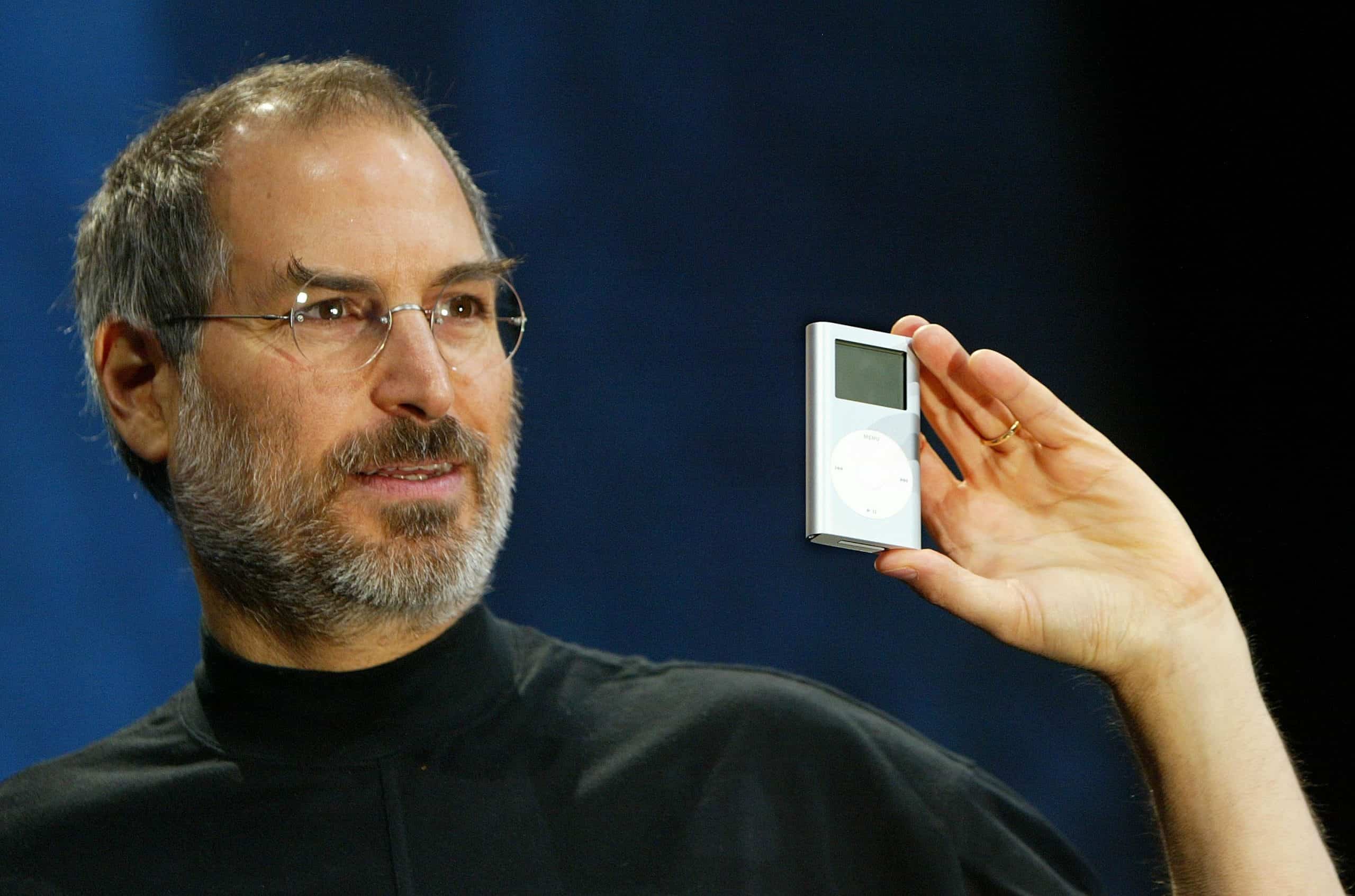
The midlife period often brings a sense of stability and accomplishment, which can sometimes lead to complacency. However, “stay hungry, stay foolish” serves as a powerful antidote to this potential stagnation.
Even though you’re comfortable, you should avoid becoming too comfortable. Complacency is a slow, easy death.
Instead, you should seek new challenges, expand your horizons constantly, and maintain your sense of wonder as much as possible.
In a world that often values experience and expertise, there’s a risk of becoming overly cautious. This quote reminds us that innovation, creativity, and personal growth often come from taking calculated risks and stepping outside of our comfort zones.

When he said this line, Steve Jobs understood the importance of passion in achieving fulfillment. If you don’t love what you do, being the best at it is very hard. It takes a lot more self-discipline to make yourself do something you want than doing something you do want.
In your 40s, you probably already have an established career. However, that doesn’t mean you can’t learn something from this quote. In fact, it may be even more important to truly understand this quote now.

Your 40s can be both inspiring and absolutely boring all at the same time. By this age, many individuals have established careers and may find themselves in roles that, while comfortable, lack the spark of genuine passion. That said, it’s never too late to pursue work that ignites a sense of purpose!
Perhaps you have a dream that has been put on hold or a career path you once loved (but don’t care much for anymore). It’s easy for things to start feeling mundane, and that’s not where big changes come from.
You should always reassess your life and consider whether your work really aligns with what you want to be doing. After all, while it’s completely possible to make big changes in your 40s, the impact that has decreases the closer you get to retirement.
Of course, going after yoru passion often involves risk and may require you to make significant life changes. This quote encourages you to take the challenge seriously and embrace the path you really care about.

How do you tell the difference between a leader and a follower? Leaders create new things and innovate, while followers just do what everyone else is doing. Steve Jobs knew this better than anyone else!

In your 40s, you’ve probably already established your career. With this experience comes knowledge that is often necessary to innovate. That said, comfort and predictability can get in your way of thinking outside the box. It’s important to remember that even seasoned professionals must continue innovating to stay ahead.
Luckily, after establishing yoru career, innovation is often easier. You likely have more freedom both professionally and personally, which gives you room to try new things.
The important thing is that you actually do try new things, instead of just sitting back and letting life go by.
Innovation does bring with it a level of risk that you may not be used to. You must be willing to fail and learn from mistakes, after all. Otherwise, you’ll be too scared to do anything new. This quote helps us bridge that gap.

Most people may not connect much with Steve Jobs’s quote about design. However, this quote actually speaks a lot about function. It isn’t just the superficial outside of something that matters. It’s also how well it works.
A truly great design does look and feel good, but it is also intuitive and efficient. Otherwise, the design feels a bit like a lie.
Many of us have purchased a sleek product only to get it home and realize that it really doesn’t work as well as we thought. But this quote goes far beyond just making good purchasing decisions (or designing good products to sell to others).

For those in their 40s, this quote encourages you to focus on practical solutions and experience. Yes, appearance is important, but it’s important not to get wrapped up in how something (or someone) looks. You need to focus more on efficiency and productivity.
It’s important to take a more intentional approach to problem-solving, both in the workplace and at home. Whether it’s designing a home, organizing a family schedule, or managing personal finances, focusing on how something works can lead to more effective and satisfying outcomes.

Your career takes up a lot of your time. It isn’t just something you do for cash. It is a huge chunk of your life. It’s important that you feel yoru work is fulfilling and meaningful. Otherwise, you’re wasting a bunch of your time doing something that you don’t really believe in.
It’s a bit like enjoying yoru work, which we’ve already dove into. However, even if you enjoy something, if you don’t feel like your job is contributing to anything, you probably aren’t going to enjoy it very much!

Work has value. Anyone who has worked on a project that changed the lives of others can tell you that. However, there are also lots of jobs that don’t feel like they contribute much. Sometimes, companies have positions that really don’t mean much. You may be doing what feels like worthless labor in the grand scheme of things.
At the same time, the company’s goal as a whole may also feel pointless. Perhaps the company is barely staying afloat or just involved in a service or product you don’t really believe in.
Both of these situations can leave you feeling unhappy and make a big chunk of your life pointless! It’s important not to get into the trap of comfort. Just because you are comfortable in your job doesn’t mean it’s the best job for you.
It’s important to regularly reflect on your life. Perhaps a once-promising career path has lost its luster, or a new passion has emerged. Your 40s are not too late to shift jobs, whether that means changing careers, companies, or positions.

Steve Jobs believed that asking questions was more important than anything else. It shouldn’t be surprising that he focuses too heavily on curiosity, which drove him throughout his career. Questioning the status quo is important for anyone looking to be successful and make a splash in life.

As you gain experience and expertise, it can be very easy to slip into old patterns and accept things as they are. “That’s how we’ve always done it” has become a mantra of many. But it’s important to maintain a questioning spirit and challenge how things are done.
Your 40s are a great time for reflection and exploration. You have plenty of experience to help guide you, but it’s important not to just start doing what’s comfortable. Always question why you (and everyone else) are doing what they’re doing and how it could be done better.
A questioning mind also keeps things from getting boring. When you’re always tackling a new problem (or on the lookout for a new problem), there is always some new, exciting adventure to enjoy.

Life is unpredictable, and it’s practically impossible to work out exactly how something will go before hand. Only afterward can you look back and go: “Ah ha!”.
Don’t take this quote as an indication of helplessness, though. Just because looking forward is challenging doesn’t mean you can’t learn from looking backward.

You should always reflect on your experiences and learn from them. Whether something good or bad happened, you can learn from the experience and try to do better next time. Unrelated experiences often converge into one singular reality once you have some perspective on it.
Reflecting on your life also provides a sense of purpose and perspective.
That said, just because you’re learning from the past doesn’t mean you can control the future. It’s important to maintain an open mind about the future. Your life path is nonlinear, so you don’t need to feel the pressure to have everything figured out right now. Instead, keep an open mind and learn from your experiences. You may not be able to connect the dots now, but you will later!

If there is any skill you need to learn in your life, it’s saying no. When you create something new, the first step is to figure out what you’re going to create, which means saying no to the dozens or even hundreds of other things you could be making.
A true breakthrough comes from eliminating the fluff and concentrating on a very specific idea. Otherwise, you’ll be pulled in too many directions!

You only have so many hours in the day. Time is your most precious resource, and you guard it by saying “no.” Focus on what truly matters, both professionally and personally. Don’t get bogged down by all the things you could do. Focus on the things you should do.
By saying “no” more often, you’ll have more time and energy to concentrate on the parts of your life you truly care about. Whether that’s a hobby or particular project or just spending more time with loved ones, saying no protects all parts of your life.
Your 40s may be an increased time of commitment and responsibilities, but it doesn’t have to be a huge time blackhole. If you’ve said “yes” too much in your life, now is the time to start saying “no.”
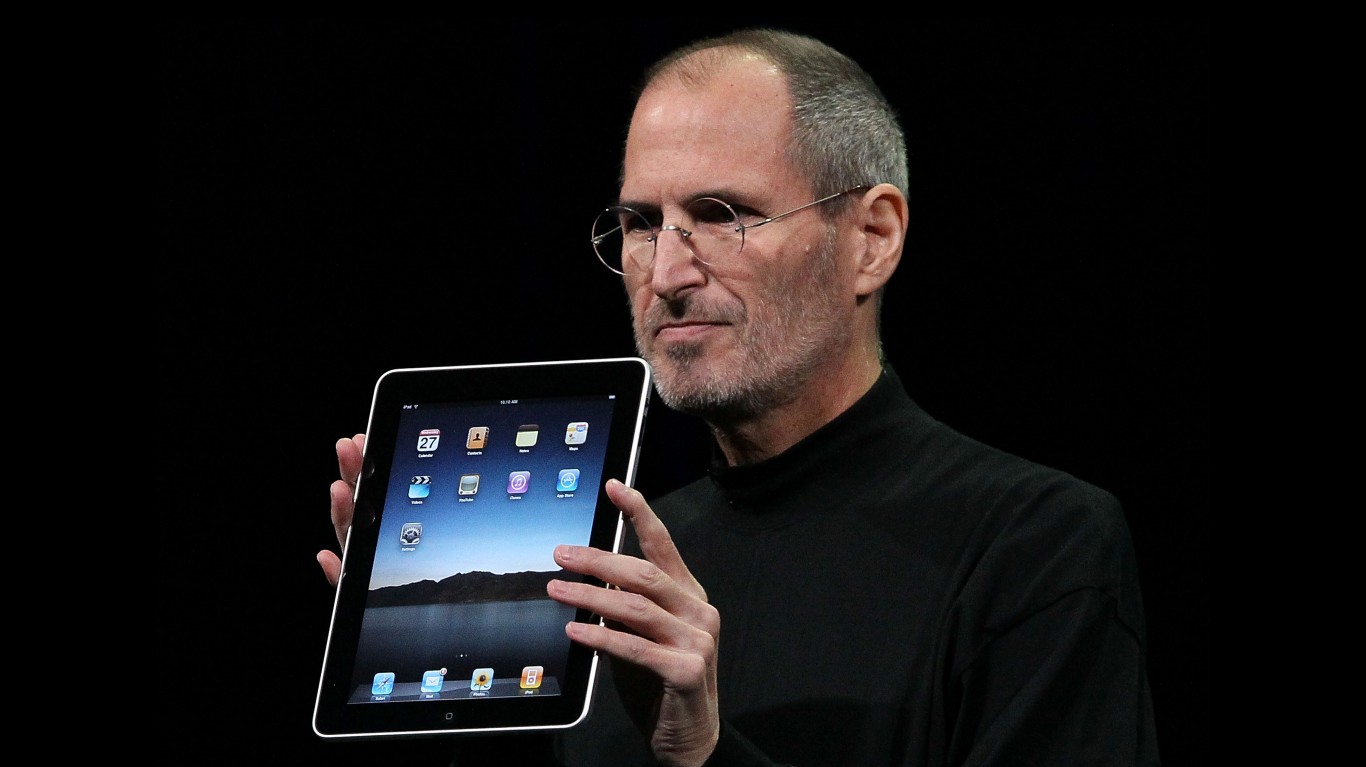
This quote is worth looking at the extended versions: “Sometimes when you innovate, you make mistakes. It is best to admit to your mistakes quickly and move on.”
Failures happen. Innovation is a lot of trial and error, and setbacks are inevitable! You cannot do the right thing all the time. It’s just not possible. You can innovate, try new things, and accept when they don’t work.
Don’t keep going down a path you already see is a dead end.
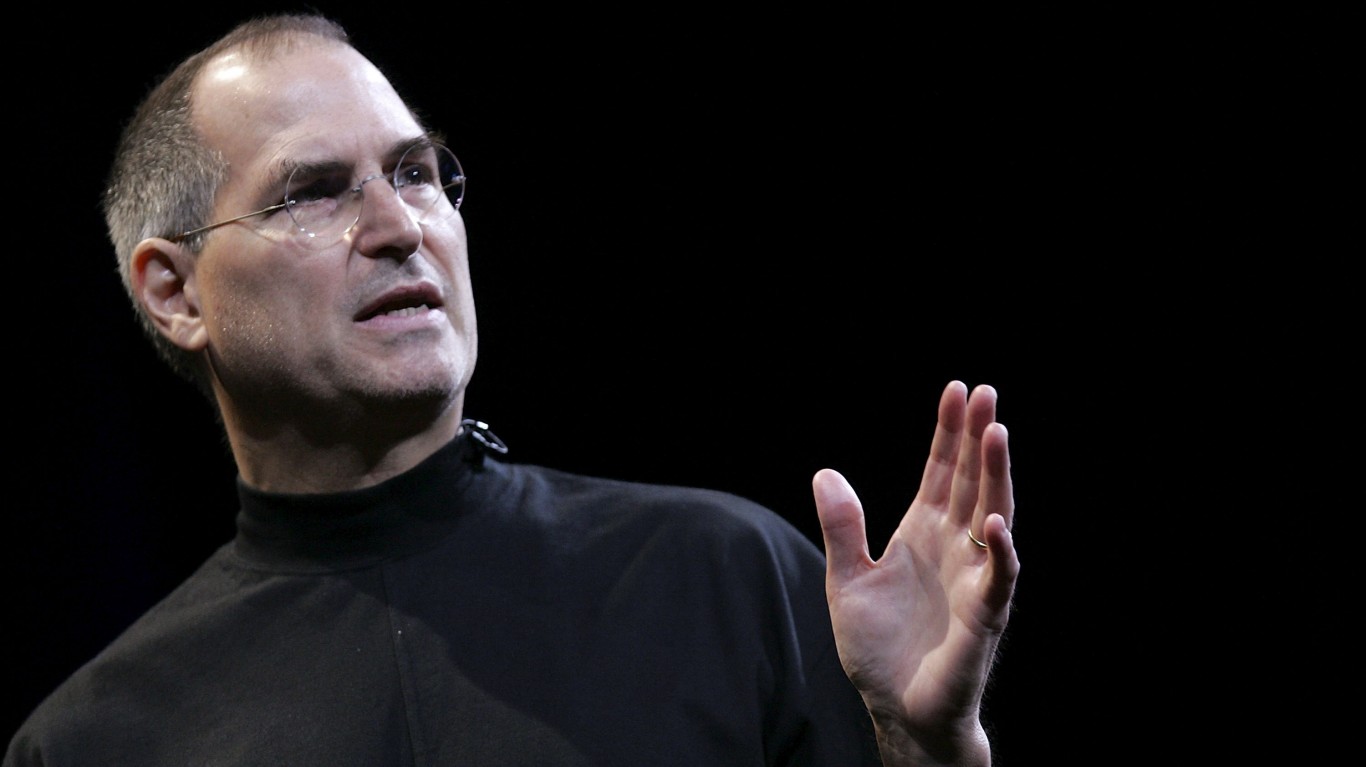
Midlife can bring with it a fear of failure, especially as individuals have more responsibilities and commitments. Jobs’ words encourage a growth mindset, emphasizing that mistakes are opportunities for learning and improvement.
Don’t be worried about ruining your comfort. Yes, it is a poor idea to take all the risks and run around like you have no responsibilities. However, that doesn’t mean you should avoid all risks and refuse to try anything new.
You should always pursue new challenges with the acceptance that you’re going to fail at least once. If something is truly challenging, getting it right on the first try just isn’t going to happen.
Start by taking a quick retirement quiz from SmartAsset that will match you with up to 3 financial advisors that serve your area and beyond in 5 minutes, or less.
Each advisor has been vetted by SmartAsset and is held to a fiduciary standard to act in your best interests.
Here’s how it works:
1. Answer SmartAsset advisor match quiz
2. Review your pre-screened matches at your leisure. Check out the advisors’ profiles.
3. Speak with advisors at no cost to you. Have an introductory call on the phone or introduction in person and choose whom to work with in the future
Thank you for reading! Have some feedback for us?
Contact the 24/7 Wall St. editorial team.